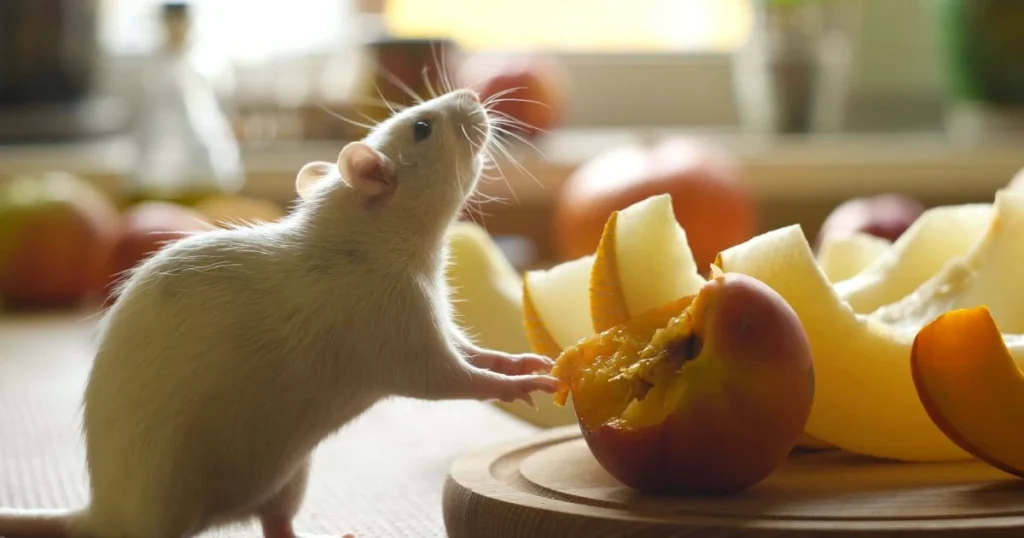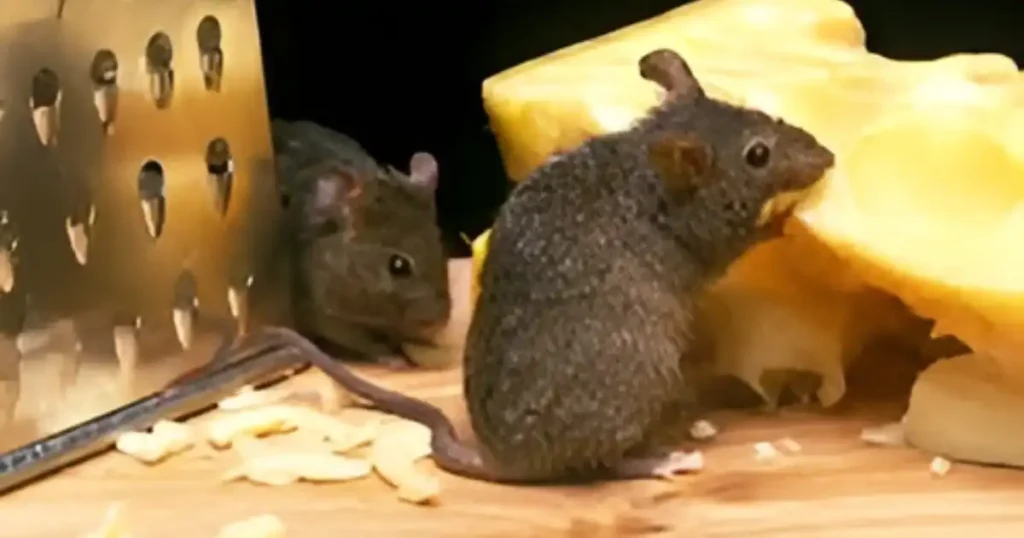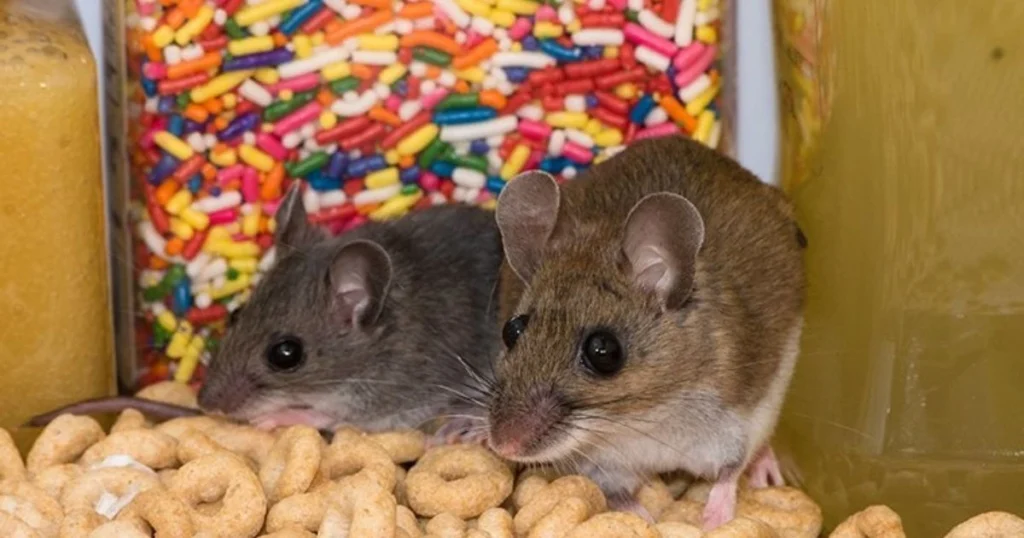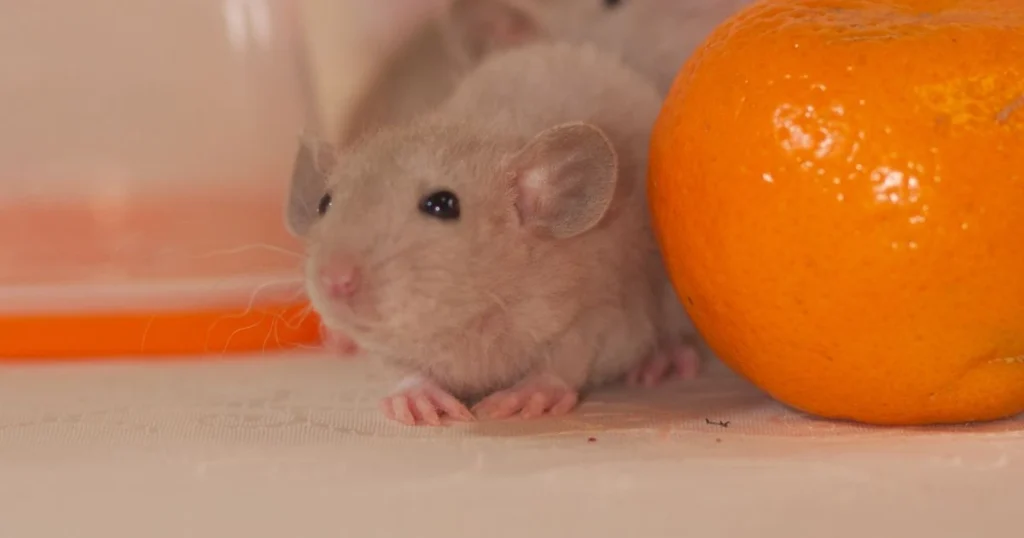
Mice are one of the most common rodents found worldwide, and they are known for their curiosity, personality, and adaptability to nature. This raises the question people ask: "What do mice eat?" This question is important to understand, as mice can cause significant damage to crops, food storage facilities, and even homes.
Mice are omnivores, which means they eat both plant and animal-based foods. Their diet can vary depending on their habitat, season, and food availability. In the wild, mice primarily feed on seeds, nuts, fruits, and insects. They also consume small animals like snails and earthworms. However, when living in human habitats, they feed on grains, cereals, and other human food items.
When learning what do mice eat, understanding mice's dietary habits is crucial in controlling their population and preventing damage to crops and property. Knowing what mice eat makes it easier to eliminate their food sources and prevent infestations. In the following paragraphs, we will explore mice's diet in detail and provide some tips on how to prevent mice from accessing their food sources.

Mice are small, omnivorous rodents that live in various habitats worldwide, including forests, grasslands, and deserts. Their diet is normally based on the food sources available in their environment.
As you research what do mice eat, you'll learn mice have a general diet that combines seeds, grains, fruits, and insects. They are known as opportunist feeders, which means they will eat whatever is available to them. This characteristic allows them to adapt and survive in different environments and food sources.
Some specific foods that mice consume in the wild include:
In resume, this is what can mouse eat in the wild. We have to keep in mind that mice in the wild have a varied diet that allows them to survive in different environments. They are adaptable creatures that can consume a variety of foods depending on what is available to them.

If you're planning to keep a pet mouse, it's essential to know what to feed it. A balanced diet is crucial for their health and well-being. Here’s some details you should consider when feeding your pet mouse:
Commercially produced diets are readily available in pet stores and online. These diets are specially formulated to meet the nutritional needs of mice. These come as pellets or blocks and contain a mix of grains, seeds, and other essential nutrients. Keep in mind that you must read the labels and carefully choose a high-quality diet that meets your mouse's nutritional requirements.
Supplements can be added to your mouse's diet to provide additional nutrients. For example Calcium is essential for the bones and teeth. You can offer your mouse a cuttlebone or a mineral block to provide calcium. Supplements of vitamins can be added also to their diet, but it's essential to consult with a veterinarian before doing so.
Fresh fruits and veggies can be offered as a treat to your pet mouse. They provide essential vitamins and minerals and can add variety to their diet. Some good options include broccoli, carrots, apples, and berries. It's essential to wash fruits and veggies thoroughly before offering them to your mouse.
When feeding your pet mouse, it's essential to provide access to fresh and clean water at all times. Using a water bottle or a shallow dish, but it's essential to clean and refill it daily.
Keep in mind that the area for feeding must be clean and of any food debris. Mice are attracted to food, and an unclean area can attract pests and create an infestation. Using nesting material made of paper or cloth can also provide a comfortable and safe area for your mouse to rest.
In conclusion, feeding your pet mouse a balanced diet is essential for their health and well-being. By providing commercially produced diets, supplements, and fresh fruits and veggies, you can ensure that your mouse is getting all the nutrients they need. Keeping the feeding area clean and providing a safe nesting area can also prevent pests and create a comfortable living environment for your pet mouse.

Discovering what mice eat can provide insights into their behavior and help with effective pest management strategies. Mice are opportunistic feeders, known to consume a variety of foods ranging from grains and seeds to insects and even occasional plant matter. Understanding their dietary preferences can aid in implementing targeted prevention methods and reducing the likelihood of infestation. Let's take a quick tour of their diet:
Do mice eat grass?
Yes, mice may nibble on grass, particularly if they're seeking moisture or fiber.
Do mice eat roaches?
Mice are known to feast on roaches, especially in environments where both pests coexist.
Do mice eat cockroaches?
Yes, mice may consume cockroaches, especially if they are available in the environment.
Do mice eat dog food?
While mice can consume dog food if it's accessible, it's not their preferred choice as they prefer grains and seeds.
Do mice eat plants?
Mice have been observed eating plants, particularly seeds, fruits, and vegetables.
Do mice eat other mice?
In rare cases, cannibalism among mice may occur, especially in overcrowded or stressed conditions.
Do mice eat caterpillars?
Mice may scavenge on caterpillars if they come across them.
Do mice eat dead mice?
Mice may scavenge on dead mice for nutrients if other food sources are scarce.
Do mice eat flour?
Flour can attract mice due to its high carbohydrate content, making it a potential food source.
Do mice eat mice?
Cannibalism among mice is uncommon but can happen in certain circumstances, such as extreme hunger.
Do mice eat mushrooms?
Mice are unlikely to purposefully seek out mushrooms as they prefer foods with higher nutritional value.
Do mice eat other dead mice?
In desperate situations, mice may resort to cannibalism, including consuming dead members of their own species.
Do mice eat each other when dead?
Cannibalism among mice is rare, typically occurring only in extreme cases of hunger or stress.
Do mice eat termites?
Termites are a potential food source for mice, especially in environments where both pests coexist.
Do mice eat leaves?
Mice may consume leaves, especially if they are tender and easily accessible.
Do mice eat eggs?
Mice may consume bird or reptile eggs if they find them, especially in nesting areas.
Do mice eat shrubs?
Mice may gnaw on shrubs, particularly if they're seeking moisture or nesting material.
Do mice eat styrofoam?
While mice may chew on styrofoam for nesting material, it's not a source of nutrition for them.
Do mice eat toilet paper?
Mice may shred and use toilet paper for nesting material, but they don't consume it for food.
Does mice eat roaches?
Yes, mice may consume roaches if they're available in their environment.
Do mice eat basil?
Mice may nibble on basil leaves if they're accessible, but it's not a primary part of their diet.
Do mice eat butterflies?
Mice are not known to actively hunt or consume butterflies as part of their diet.
Do mice eat centipedes?
Mice may consume centipedes if they come across them, but it's not a staple part of their diet.
Do mice eat moss?
Mice may nibble on moss if it's available, but it's not a significant part of their diet.
Do mice eat snakes?
Mice are not known to actively hunt or consume snakes as part of their diet.
Do mice eat walnuts?
Mice may consume walnuts if they're available and accessible in their environment.
Do mice eat bread?
Yes, mice do eat bread. They are attracted to bread due to its high carbohydrate content and will consume crumbs or larger pieces if available.
Do mice eat bird food?
Mice may consume bird food if it's accessible, especially seeds and grains.
Do mice eat birdseed?
Yes, mice may consume birdseed if it's available, especially in bird feeders.
Do mice eat clothing?
Mice may chew on clothing for nesting material, but they don't consume it for food.
Do mice eat cooked chicken?
Mice may nibble on cooked chicken if it's accessible, but it's not a staple part of their diet.
Do mice eat fabric?
Mice may chew on fabric for nesting material, but they don't consume it for food.
Do mice eat ferns?
Mice may nibble on ferns if they're accessible, but it's not a primary part of their diet.
Do mice eat from food bowls?
Mice may steal food from pet bowls if they're accessible, especially grains and seeds.
Do mice eat house plants?
Mice may nibble on house plants if they're accessible, particularly tender leaves and shoots.
Do mice eat raisins?
Mice may nibble on raisins if they're accessible, but they're not a staple part of their diet.
Do mice eat rice grains?
Yes, mice may consume rice grains if they're available and accessible.
Do mice eat sesame seeds?
Mice may nibble on sesame seeds if they're available, but they're not a staple part of their diet.
Do mice eat their babies if you touch them?
Mice may abandon or harm their young if they're stressed, but they don't typically eat them.
Does a mouse eat a grasshopper?
Yes, a mouse may consume a grasshopper if it's available and accessible.
Do mice eat clothes?
Mice may chew on clothes for nesting material, but they don't consume them for food.
In addition to the common foods mice consume, many people wonder if mice can eat certain other items. Since mice are opportunistic feeders, their diet can extend beyond what we typically imagine. Below are answers to frequently asked questions about what mice can eat:
Can Mice Eat Strawberries?
Yes, mice enjoy sweet fruits like strawberries and are easily attracted to them.
Can Mice Eat Bread?
Yes, mice can eat bread. They may consume bread crumbs or scraps if they find them, though bread is not their primary choice.
Can Mice Eat Oranges?
Yes, mice can eat oranges, but citrus fruits like oranges are not typically their preferred choice.
Can Mice Eat Lettuce?
Mice can eat lettuce, although it's not the most nutritious option for them.
Can Mice Eat Raisins?
Yes, mice may nibble on raisins due to their sweet taste.
Can Mice Eat Bell Peppers?
Mice may eat bell peppers, but they generally prefer grains or sweeter fruits.
Can Mice Eat Blackberries?
Yes, blackberries, like other fruits, are appealing to mice.
Can Mice Eat Cranberries?
Mice can eat cranberries, although they may not be their first choice due to their tartness.
Can Mice Eat Oats?
Oats are a favorite food for mice, as they naturally prefer grains.
Can Mice Eat Raspberries?
Yes, mice enjoy raspberries just like other sweet fruits.
Can Mice Eat Spicy Food?
Mice typically avoid spicy foods because the strong flavors are unappealing to them.
Can Mice Eat Bird Seed?
Yes, mice are highly attracted to bird seed, especially grains and seeds.
Can Mice Eat Dog Food?
Yes, mice can eat dog food. While it's not their preferred choice, mice will consume dog food if it's accessible.
Can Mice Eat Nuts?
Yes, mice love nuts, particularly peanuts and walnuts, due to their high-fat content.
Can Mice Eat Pumpkins?
Mice can eat pumpkin flesh and seeds, which are nutritious for them.
Can Mice Eat Grass?
Yes, mice can eat grass, but it is not a primary food source for them.
Can Mice Eat Cucumbers?
Mice may nibble on cucumbers, but they generally prefer grains or sweeter fruits.
Can Mice Eat Avocado?
While mice can eat avocado, it's best avoided as the skin and pit can be harmful.
Can Mice Eat Through Plastic Containers?
Yes, mice can chew through plastic containers to access food inside.
Can Mice Eat Through Concrete?
No, mice cannot chew through solid concrete, but they can squeeze through cracks or holes.
Can Mice Eat Through Duct Tape?
Yes, mice can chew through softer materials like duct tape if it’s in their way.

In summary, a mouse's diet consists of a variety of foods, including seeds, grains, fruits, insects, and plants. They are omnivores and can consume both meat and plants. However, the majority of their diet is plant-based, and they need a balanced diet to stay healthy.
Feeding your pet mouse a balanced diet has numerous benefits. A balanced diet ensures that your mouse receives all the necessary nutrients it needs to stay healthy and active. It helps to prevent obesity, dental problems, and other health issues that can arise from a poor diet.
Providing a varied and balanced diet for your pet mouse can also help to stimulate their natural foraging and hunting instincts, keeping them mentally stimulated and happy. It is essential to ensure that your mouse has access to fresh water always, and that their food is stored correctly to prevent spoilage.
In conclusion, understanding a mouse's diet is essential for their health and well-being. Having a balanced diet with a plethora of foods including seeds, grains, fruits, insects, and plants, will ensure that your pet mouse remains healthy and happy.
Normally house mice are opportunistic feeders and will eat a wide range of food sources. Indoors, they typically feed on grains, seeds, nuts, and other dry food items. They are also known to consume fruits and vegetables, as well as pet food and human food scraps.
Yes, insects are a part of a mouse's natural diet. In the wild, mice will consume insects and other small invertebrates, as well as seeds, nuts, and fruits.
Mice are attracted to residential areas because they provide a steady supply of food, water, and shelter. Food sources can include pet food, birdseed, and garbage, while shelter can be found in cluttered areas such as garages, attics, and basements.
Mice do not have a specific favorite food, but they do prefer high-calorie foods that are rich in fats and proteins. This includes nuts, seeds, and grains.
In a house, mice are opportunistic eaters and will consume almost anything available, but they primarily seek out grains, seeds, fruits, and sweets. They are also known to eat food scraps, pet food, crumbs, and even items not traditionally considered food, such as paper or cardboard, if they are desperate.
Yes, mice will engage in cannibalistic behavior when food is scarce. This can include eating the young of other mice or consuming dead mice.
In the wild, mice are omnivorous, eating a variety of foods such as seeds, grains, fruits, plants, insects, and occasionally small animals.
Wild and urban mice's eating habits can differ depending on their environment. Wild mice will consume a wider variety of food sources, including insects and other small invertebrates, while urban mice rely more heavily on human food sources such as grains, seeds, and pet food.
Got trouble with mice in your attic or walls? At Critter Stop we can help keep your house clean from any rodent infestation, Contact us at (214) 234-2616, and we’ll gladly assist you to keep your home rodent-free and safe.
Visit our Critter Library and learn more about our furry friends